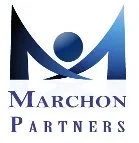
Employee’s Personal Brand and how it impacts your company
When employers choose to hire a candidate, they usually look for the person who has a personal brand that compliments their company’s mission. When this alliance is strong both the business and the employee thrive in developing a strong working relationship that prospers.
What is an employee’s personal brand?
According to a 2019 Linkedin article, entrepreneur Gary Vaynerchuk stated, “your personal brand is your reputation.” Reputations for both companies and for the people who work for them tend to develop over the long-term, but begin the moment someone first interacts with you, as Vaynerchuk notes.
In the State of Corporate Reputation in 2020: Everything Matters Now report conducted by Weber Shandwick and KRC Research, on average, found that global executives credited 63% of their company’s value in the market to their company’s reputation.
A good reputation, according to Indeed, often will include:
Customer Service – The better experience that a customer has will determine how they feel about consuming your product. If their experience is a bad one based on lack of customer service, they are less likely to be a repeat customer or tell others about your company.
Product or Service Quality – If the product or service itself has poor quality, the reputation of its defects and lack of usefulness will often deter customers from buying again when it is seen as not valuable.
Treatment of Employees – A company that treats its employees with respect, provides good benefits, and career development will typically have a reputation of caring about their employees. This usually will translate into how employees feel and talk about the company.
How does an employee’s personal brand impact their company?
When employers research potential candidates they are typically looking for a personal brand that aligns with their company to avoid future problems that could directly impact their reputation in a negative way.
The Harris Poll survey that was conducted for CareerBuilder in 2018, asked over 1,000 hiring managers and HR professionals what interested them the most when doing online searches this included:
- Information that could reaffirm the prospective new hire’s qualifications
- If a professional online profile was available for the candidate
- What others are saying about the prospective applicant
Behaviors that often discouraged employers to offer a job candidate an interview included:
- Inappropriate videos, photographs, and information
- Discriminatory comments based on race, religion, or gender
- Making poor comments about a previous company or their co-workers
If the job candidate didn’t have any social media presence, then 47% said they wouldn’t likely call the job candidate in for an interview.
However, if they did see the following positive traits online they would often hire the job applicant:
- Background and professionalism supports the qualifications for the job
- Having creativity, being well-rounded, and a variety of interests
- Sensing how their personality could fit with the culture of the company
What is the best way for managing an employee’s personal brand?
Once a candidate is hired, often their social media presence continues to be reviewed. According to The Harris poll, almost half (48%) will continue monitoring and almost 10% will do so on a daily basis. With this review, some employers found the content warranted consequences including reprimands and in some cases termination.
According to everyonesocial, the power an employer has to encourage a solid social media presence includes:
Provide social media training – Teach them how to effectively optimize, become more engaged, and potentially become a brand ambassador for your company.
Reward their efforts – As employees build up their personal brands, recognize their success by promoting their efforts as an example for other employees.
Offer to update profiles – Updating a photo with a professional headshot or updating their bio can help them use internal resources to promote your company’s brand outside the company.
Benefits for employers who hire talent that have strong personal brands
According to Zippia, there are several advantages of using social media strategies in order to both recruit and retain employees through social media. Instead of having a static communication strategy that flows from the employer to the outside world, more opportunities to build the company brand can also be expanded including:
Promotion: Employees who are already working at your company can outreach to others who are in different industry groups, provide additional information and influence.
Research: Many employees have a strong personal brand and stay up-to-date since they are following other companies in the same industry to watch new trends and potential opportunities.
Connection: Not only can employers reach out to potential candidates directly, they can also develop new connections via existing employees who are already familiar with your company.
